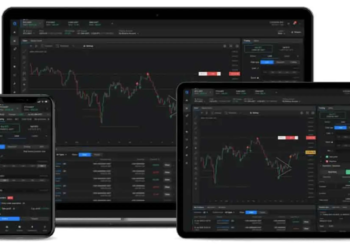Cybercrimes expose companies to technical, legal, and reputational dangers with immeasurable financial losses. Because of this, regulatory bodies created Know Your Customer procedures to stop corruption and money laundering schemes.
Thank you for reading this post, don't forget to subscribe!Typically, KYC procedures are carried out by financial institutions prior to opening client accounts. Money laundering is a concern because criminals are constantly coming up with new, inventive ways to hide their unlawful funding sources. Illegal sources may come from smuggling, tax evasion, terrorism financing, corruption, drug trafficking, and more. A KYC platform identifies customers and combats money laundering and other fraudulent cases all over the world. The rules are set by regulatory bodies that are specific to each nation, territory, and jurisdiction.
KYC Compliance
To confirm the legitimacy of customers, financial institutions must comply with KYC regulations. So let’s use the opening of a bank account as an example while onboarding new clients. To ensure KYC adherence, customer identity and verification procedures are conducted. Banks have the ability to reject account opening applications from consumers if the KYC procedures are unsuccessful or yield unfavorable results. To counter the cases of terrorism financing and money laundering, KYC conformity is crucial in the dynamic financial environment of today Personal Loan in UAE, New and Old Car Loan, Home Mortgage Loan, Credit Cards, Business Loan.
Automatic KYC screenings are making it increasingly challenging for financial organizations to comply with KYC regulations as the globe rapidly digitizes. This is because physical KYC checks are getting more difficult to use accurately for securing client and corporate interests. Digital KYC system software is thereby improving and effectively complying with laws and regulations around the world sqex me link.
Components of KYC
Simplified Customer Due Diligence
KYC platform conducts verification checks in the early stages of customer recruitment. It typically evaluates any dangers that clients might pose. This does not necessitate a thorough investigation due to the fact that people are not divided into high- or medium-risk profiles.
Standard Due Diligence
In the situation of government agencies or well-known organizations, a KYC platform conducts standard due diligence. These consumers fall into the low- or medium-risk category. Every nation and jurisdiction has a unique set of rules that specify when to carry out common due diligence procedures.
Enhanced Due Diligence
Unlike customers and conventional due diligence, high-risk persons are subjected to thorough screening to see whether they have ever participated in money laundering, terrorism funding, or corruption. To reduce the likelihood of financial offenses, the company’s UBOs and earnings sources are recognized and checked against PEPs and international sanction lists by a KYC platform.
How Can KYC Protect Global Businesses?
Understanding the customer is crucial since it provides information about the client’s company they work with. It enables the banking sector to do thorough due diligence on customers to confirm their identities and thwart corruption, money laundering, and identity fraud. Knowing customers and adhering to compliance regulations shields companies from unintended reputational harm caused by outside intrusions into their systems. In many nations around the world, the laws governing money laundering and terrorism financing are getting harsher every day.
A full investigation of the entities, including everyone desiring to link with a firm in any shape or form, is performed via comprehensive KYC software. In-depth client due diligence is carried out for proof of identity, screening against watchlists to pinpoint doubts of money laundering, verifying UBOs in the case of KYB, gathering customer details, and checking against PEPs, and global lists for enhanced protection.
KYC compliance software determines each person’s risk level, and those who pose a high risk undergo further authentication processes such as checking against negative media and thorough business analysis. A constant updating of risk profiles is required due to the shifting security environment. Financial institutions worldwide are obligated to abide by the “Know Your Customer” requirements. The failure to abide by the regulations results in penalties. Businesses pay millions of dollars in fines each year for not adhering to KYC/AML regulations. This actually destroys the reputation of businesses.
Final Thoughts
In the digital world, it is quite tough to meet the demands of a customer. A business shouldn’t allow its customer base or financial means to stand in the way of its development. The KYC platform makes it possible to onboard legitimate clients and fulfills their requirements, which in return help businesses generate greater revenue.
Along with identity verification, money laundering is a risk for any business. It’s astounding to learn that fintech companies invest $2 trillion a year in preventing financial fraud. By adopting KYC systems with AI algorithms, any company or financial institution may follow compliance with changing AML guidelines and KYC regulations. It is only achievable with a one-time investment in digital validation tools.











